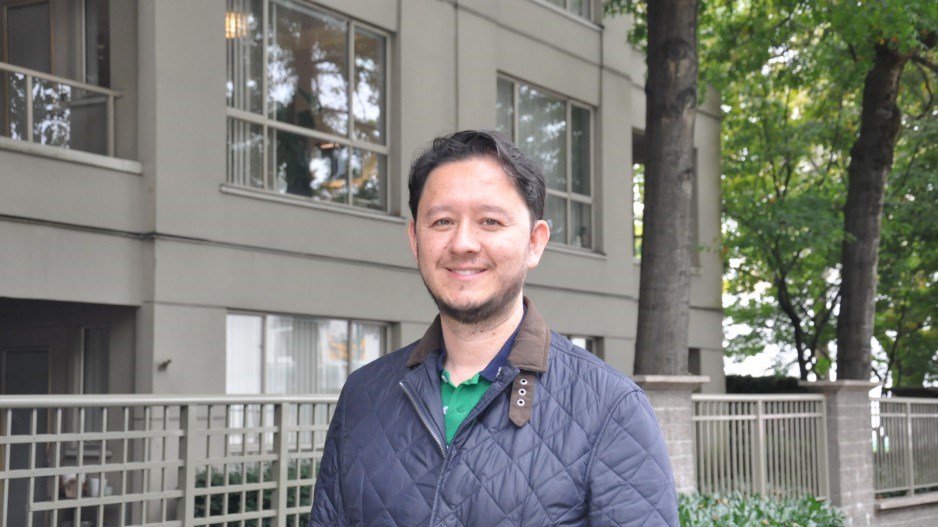When Mark Boardman moved to Â鶹´«Ã½Ó³»from Singapore with his family in 2017, he says he felt the city was like London, where he grew up – lacking a warm, welcoming feeling.
People keep a safe distance from each other and neighbours don’t know the person living next door, said. And if you want to meet someone in their house, you need to make an appointment weeks in advance.
“Generally, the way that everything has been designed, the space, it's quite consumeristic, individualistic … whereas in many places, you can just walk in the back door and have a coffee or have a barbecue,” said Boardman, who grew up in a family that often housed international students and spent years in different countries in Europe and Asia.
So Boardman started a social experiment in his student apartment at the University of British Columbia where his wife studied. He knocked on his neighbours’ doors – more than 20 of them – to see how they reacted to an uninvited stranger.
“Everybody opened the door and let me come in, and they gave me a coffee and I played with the children and sometimes just listened to all their stories for hours and hours,” said Boardman.
He soon realized that despite many people sharing worries or struggles, they often feel lonely and isolated because they aren’t sharing those challenges with others.
“I decided to find people that could connect with them as a project. I made a spreadsheet of all of these assets and gifts, and I started connecting people. Then I made a little app,” said Boardman.
A lady looking to learn piano found out that there was a piano teacher living three doors down, and a Korean family searching for a math teacher was connected to someone in the neighbourhood that had been a math teacher in Seoul.
The app was the prototype of Minivillage, a platform the former lawyer and company executive and his team spent the past five years developing, with a goal to help people in the community make meaningful connections and to trade in small networks where they live within walking distance.
The platform’s algorithm connects like-minded neighbours living in a particular residence. They can go for a coffee, join a hiking group or book club, or take advantage of babysitting and other services hosted by residents in the building, according to Boardman. Connections are facilitated by building managers who can introduce users.
Minivillage is also a central spot for announcements about a building. It includes an e-notice board and Q&A section to help engagement among neighbours and between residents and a property manager.
The company, which is in its early stages, is looking to work with property managers to bring Minivillage to social housing projects – where tenants may need a stronger support system and community atmosphere – as well as market and co-op housing.
“We can bring people together in cost-effective ways to make them feel better about living here.… Those small micro interactions that we have with maybe the coffee shop, or the receptionist, or your neighbour in the laundry room, all of these actually make your day brighter.”
This in turn could help save on property management costs by reducing building turnover and increasing residents’ desire to care for their building, Boardman said.
He said the company also hopes to expand to more communities, including single-family neighbourhoods, with the proper business model.
Boardman said he believes in the power of connections in making people happy. Sometimes, he said, someone just needs to take the first step.
He said he values his Best Resident award, which was given to him by the mayor of Westminster in the U.K., after he organized, coached and mentored a group of more than 100 young people in his neighbourhood in North London. That initiative started with him bringing a soccer ball to the local park and inviting others to play.
“We'd love to see Minivillage being invited into hundreds of buildings in Canada. We want to see the atmosphere and the spirit of community return into communities in more meaningful ways, not just acquaintances.”




